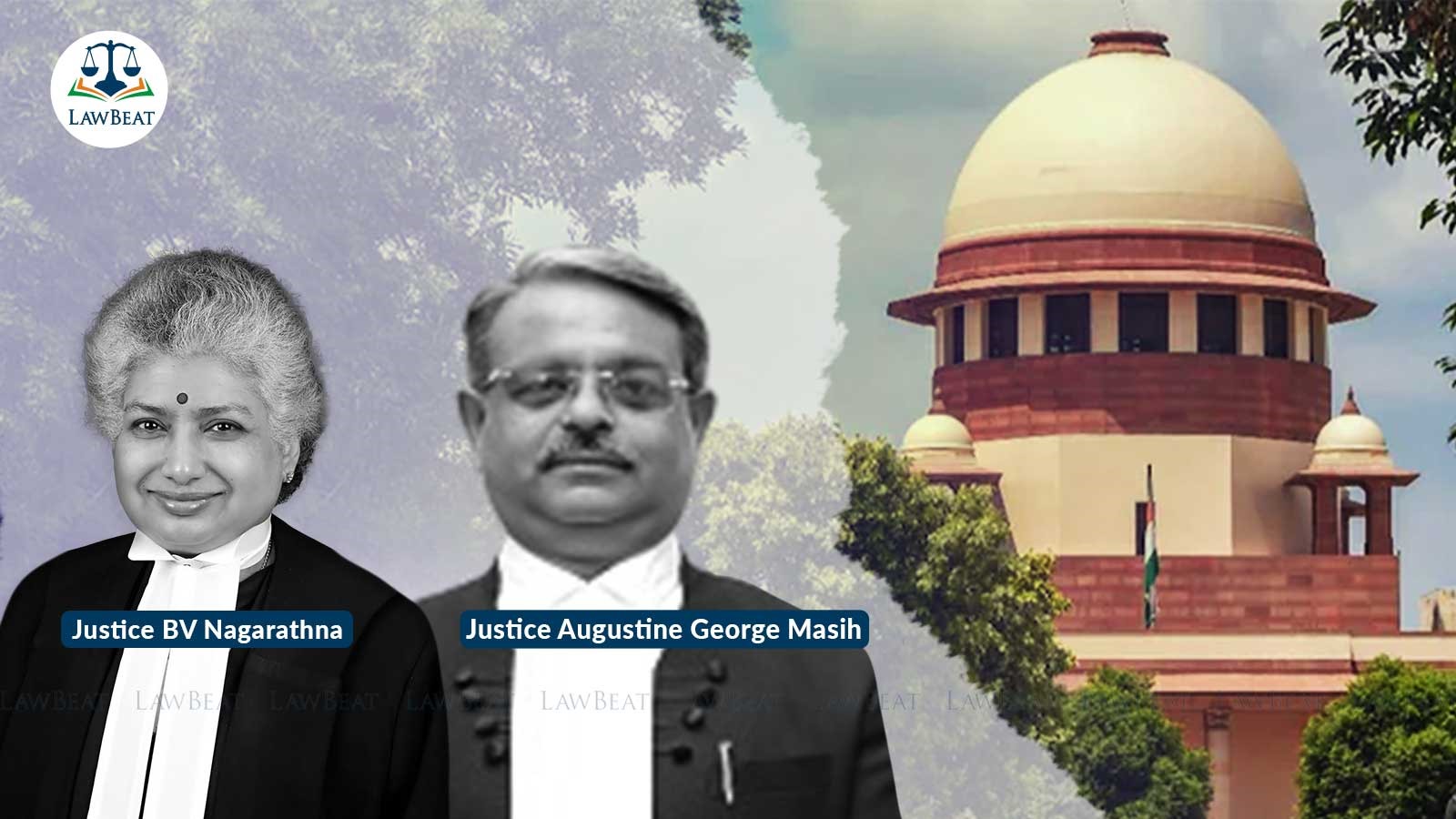'Incumbent upon insurer to prove allegation of non-disclosure,' SC rejects repudiation for not revealing 15 pre existing policies

Supreme Court has said the repudiation of the policy was without any basis or justification as insurance company did not provide complete details on its allegations of non-disclosure
The Supreme Court has on April 10, 2024 said it is incumbent on each party to discharge the burden of proof, which rests upon him and in the context of insurance contracts, the burden is on the insurer to prove the allegation of non-disclosure of a material fact and that the same was fraudulent.
A bench of Justices B V Nagarathna and Augustine George Masih said the burden of proving the fact, which excludes the liability of the insurer to pay compensation, lies on the insurer alone and no one else.
With this view, court has set aside the NCDRC's order of 2019 and directed the insurance company to pay the claim under both the policies to the appellant, Mahakali Sujatha amounting to Rs 7,50,000 and Rs 9,60,000, with interest at the rate of 7% per annum from the date of filing the complaint, till the actual realisation.
In the case, the insurance claims were repudiated for the appellant's father who died in a train accident in 2011. The deceased had obtained two policies from Future Generali India Life Insurance Company Limited.
The company claimed the policy holder had suppressed material facts in his application form with respect to existing life insurance policies from other insurers. It claimed fifteen insurance policies were taken by the deceased from various insurers, other than the policy taken from it.
The bench, however, said "Though the proceedings before the Consumer Fora are in the nature of a summary proceeding. Yet the elementary principles of burden of proof and onus of proof would apply. This is relevant for the reason that no corroborative evidence to what has been deposed in the affidavit is let in by the insurance company in order to establish a valid repudiation of the claim in the instant case."
Court further said the burden of proving a fact always lies upon the person who asserts the same. "Until such burden is discharged, the other party is not required to be called upon to prove his case. The court has to examine as to whether the person upon whom burden lies has been able to discharge his burden. Further, things which are admitted need not be proved. Whether the burden of proof has been discharged by a party to the lis or not would depend upon the facts and circumstances of the case. The party on whom the burden lies has to stand on his own and he cannot take advantage of the weakness or omissions of the opposite party. Thus, the burden of proving a claim or defence is on the party who asserts it," it opined.
In the case, the insurance company provided a table indicating fifteen policies bought by the deceased. The NCDRC accepted the averment, without demanding corroborative documentary evidence in support of the said facts.
Holding the approach of the NCDRC was not correct, the bench said, "The NCDRC could not have relied upon the said tabulation and put the onus on the appellant to deal with that issue in her complaint and thereby considered the said averment as proved or proceeded to prove the stance of the opposite party."
The bench said the repudiation of the policy was without any basis or justification.
"It can safely be concluded that the respondents have failed to adequately prove the fact that the insured-deceased had fraudulently suppressed the information about the existing policies with other insurance companies while entering into the insurance contracts with the respondents herein in the present case," the bench said.
In its judgment, the bench also referred to legal maximum "Uberrimae fidei”, which governs the insurance contracts, the principle of utmost good faith puts reciprocal duties of disclosure on both parties to the contract of insurance.
"These reciprocal duties mandate that both the parties make complete disclosure to each other, so that the parties can take an informed decision and a fair contract of insurance exists between them. No material facts should be suppressed, which may have a bearing on the risk being insured and the decision of the party to undertake that risk. However, not every question can be said to be material fact and the materiality of a fact has to be adjudged as per the rules," the bench said.
